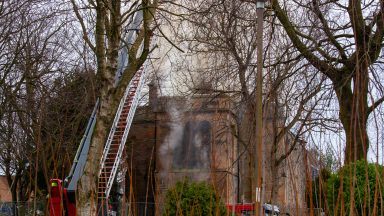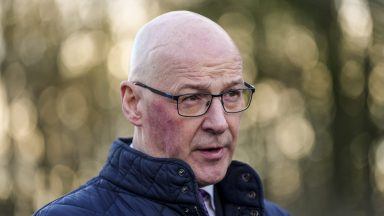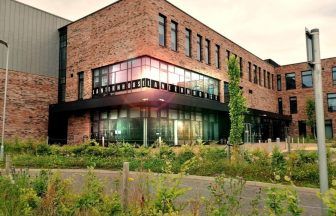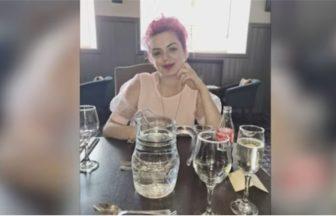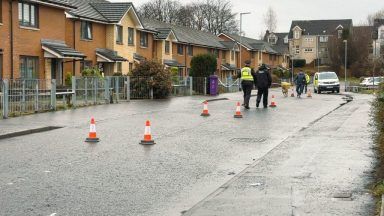An Army reservist has visited an island battlefield in the Netherlands where his grandfather fought through floodwater to liberate Europe from the Nazis.
Colour Sergeant James Gould, 51, who serves with 6th Battalion, The Royal Regiment of Scotland (6 SCOTS), retraced the footsteps of his grandfather, Private Thomas Polson.
Mr Gould, from Glasgow, commemorated the 81st anniversary of Operation Infatuate, the Allied landings which liberated the island of Walcheren in November 1944, with fellow reservists on a battlefield study, Exercise Lowland Poppy.
His grandfather fought in the battle, but rarely spoke about it. He survived the Second World War and later worked in Edinburgh as a hairdresser, before his death in 1999.
Part of the wider Battle of the Scheldt, the land-and-sea assault was a British and Canadian offensive which went on for a week in a bid to open the port of Antwerp for Allied supplies and to gain access to Berlin.
Allied troops fought through flooded streets to liberate a heavily fortified hotel used by the German military, which was surrounded by trenches, bunkers and machine gun posts.
The Hotel Britannia was used by German garrison commander Oberst Reinhardt as headquarters, and on November 3, 1944 he surrendered along with 600 prisoners.The offensive included the 7th/9th Royal Scots – part of the 52nd (Lowland) Division – and Pte Polson was one of those involved.
Speaking ahead of Remembrance Sunday, Mr Gould said: “It was incredible to walk the same ground my grandad did.
“He never really spoke about it when I was growing up, so to stand where he once stood really brought it home. I was proud to know that he was there, participated in the battle in whatever role he played.”
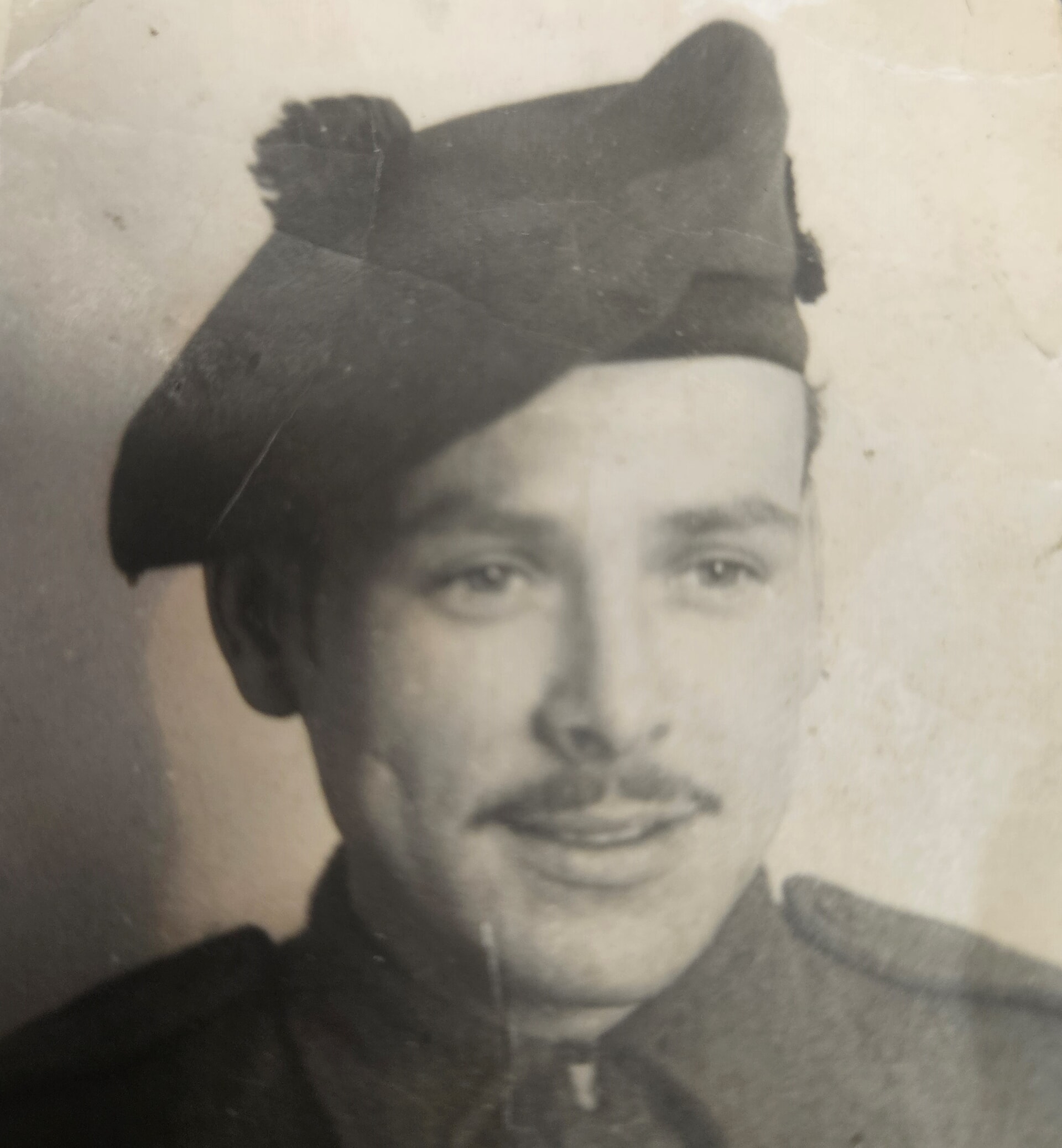 PA Media
PA MediaIn 1994, his grandfather returned to the Netherlands to visit the battleground for the 50th anniversary of the offensive.
Mr Gould recently retraced the route, and said: “Battlefield studies are brilliant for soldiers. You learn how operations were fought, the challenges of leadership, and you see things from both sides.
“Doing that on the ground adds a whole new layer to it – but this one was different for me.
“It wasn’t just a professional exercise, it was personal, and I wasn’t just learning about history, I was following my family’s footsteps.”
In the post-war years, his grandfather remained an Army reservist, and Mr Gould said he believes some of the strict military values were a factor in everyday life.
Mr Gould said: “He was a hairdresser by trade and a career reservist. He had three barber shops in Portobello.
“I like to think he took some of that Army precision with him, the discipline, the care, the attention to detail.”
Mr Gould trained to become a baker and joined the Army reserves on a whim aged 21, in 1996.
He spotted a recruitment office in Glasgow and joined speculatively, and has deployed on operations in Iraq and Afghanistan.
He now serves as 6 SCOTS ReMSO (regimental mentoring support officer), a role which involves recruitment, mentoring and community engagement across the battalion.
Mr Gould said: “I was 21, learning to be a baker at the time. I told my friend to stop the car, and just ran in.
“I just wanted to do something completely different at the weekends, and 29 years later I’m still doing it.”
He also discovered his great-grandfather, Charles Fisher, served during the First World War, fighting in the Battle of Passchendaele with the King’s Own Scottish Borderers.
Mr Gould’s uncle and brother also joined the military and he has been exploring the history of four generations of his own family.
He said: “It’s fascinating to uncover more of their story. I’ve been working with the Royal Scots Museum, finding my great-grandad’s records, and now we’re piecing together how all these generations connect.
“It really makes you realise how strong the link between service and family can be, especially when the battalions they served with have now become part of The Royal Regiment of Scotland. It’s really quite special.”
Mr Gould said revisiting the battleground where his grandfather fought gave him a sense of continuity.
He said: “It’s quite something to see that picture now and realise I’ve stood in the same place. There’s something really special about that continuity.
“History is part of who we are. You can’t understand what we do now without understanding what they did then – and to carry that legacy forward means a lot.”
Follow STV News on WhatsApp
Scan the QR code on your mobile device for all the latest news from around the country


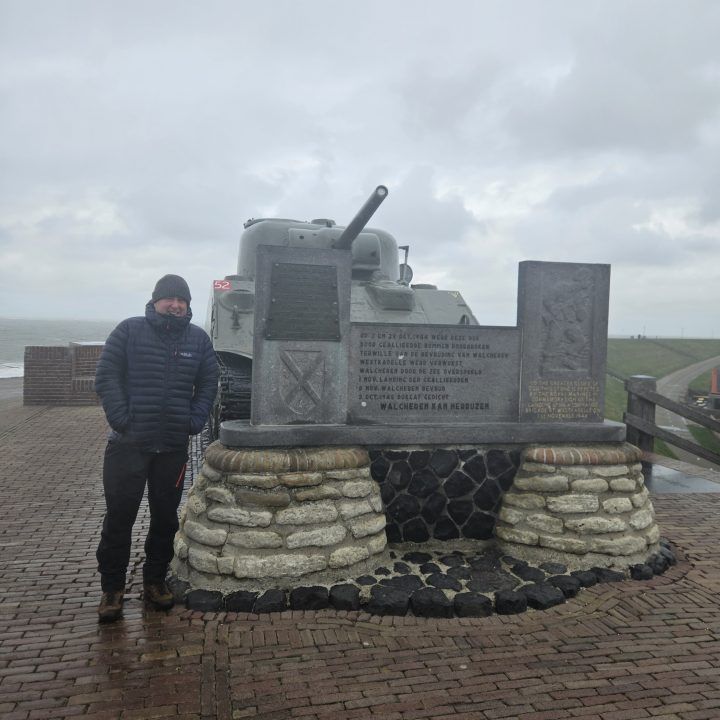 PA Media
PA Media






